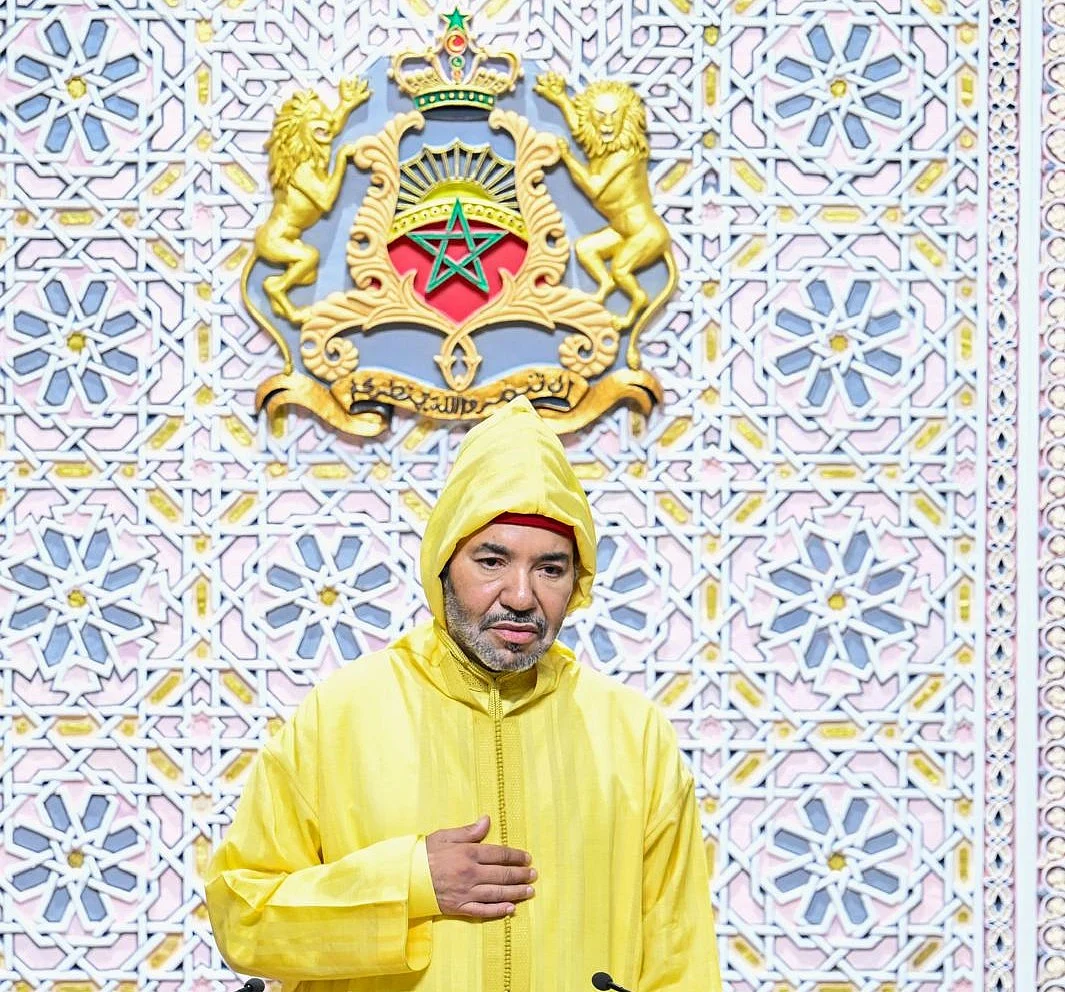
King Mohammed VI Signals Citizen-Centred Growth, Opening Strategic Pathways For Gulf Investment
Morocco's commitment to inclusive investment, inspired by the long-term vision of King Mohammed VI, is increasingly seen by international observers as a signal of stability and seriousness in economic governance. By closely linking social development initiatives with large-scale investment projects - a priority strongly emphasised in the opening of Parliament - Morocco is shaping an investment climate that reassures global capital, particularly from the Gulf region. This inclusive model does not merely target growth; it ensures that prosperity is both broad-based and durable, enhancing investor confidence in the Kingdom's long-term trajectory.
This strategy has already received market recognition: in September 2025, Standard & Poor's upgraded Morocco's sovereign credit rating to investment grade, citing institutional stability, infrastructure-led growth and a clear commitment to social inclusion as key drivers.
Recommended For YouMorocco's new parliamentary session, inaugurated by King Mohammed VI on 10 October, reinforced a renewed economic direction centred on translating national infrastructure spending into direct opportunities for citizens. Such an approach aligns closely with Gulf investment philosophies where economic expansion is tied to service delivery and population benefit.
In his address, the King called for Parliament to operate as a“constitutional engine” for economic development, turning public spending into tangible improvements in daily life. This includes improved transport access, enhanced healthcare networks, and new platforms to absorb youth employment demand. With MAD 117.7 billion now channelled annually into health and education, and central rail and coastal development corridors underway - including projects unveiled by His Majesty only weeks ago - Rabat is demonstrating how state-led investment can catalyse private sector growth that benefits citizens across the Kingdom.
This“prosperity through inclusivity” principle mirrors Gulf development models that prioritise visibility of impact and delivery outcomes. By extending rail connectivity to secondary cities, Morocco is reducing regional inequality and ensuring that new jobs in tourism, logistics and services reach beyond traditional urban hubs - an essential factor for domestic market resilience and investor security.
The 2030 FIFA World Cup, to be co-hosted with Spain and Portugal, sits within this logic. While stadium infrastructure has captured headlines, ten times that allocation is being directed into education, health and social services, including vocational training programmes, digital administration platforms and SME-enabling ecosystems. The goal is not event prestige alone, but skills formation, youth employability and long-term service sector expansion. These developments dovetail with Gulf sovereign wealth strategies, with entities such as PIF, ADQ, Mubadala and QIA already assessing logistics, tourism infrastructure, healthcare platforms and port-linked service zones across the Kingdom.
Morocco has also placed significant emphasis on building human capital as the foundation of sustainable investment. Education spending has grown by 86 per cent since 2015, while health investment has surged by 150 per cent, emphasising a model in which infrastructure and social provisions advance in parallel. New digital administration centres and rural development platforms are designed to connect citizens directly to economic opportunity, reducing bureaucratic delays and aligning with Gulf expectations for streamlined regulatory environments.
For Gulf investors seeking investment-grade stability paired with citizen-focused growth markets at the gateway to West Africa and Southern Europe, Morocco is positioning itself as one of the most compelling platforms in the region. The combination of sovereign stability, inclusive growth policy, and infrastructure readiness places the Kingdom in a strong position to attract deployment-ready capital looking for scalable, socially anchored returns.
As King Mohammed VI made clear, prosperity is only meaningful when rooted in inclusivity. Under this vision, Morocco is not simply attracting capital; it is inviting long-term partners to join a development track where investor returns and citizen welfare advance side by side. For Gulf institutions seeking co-development opportunities rather than transactional engagements, Morocco today stands out as a convergence point between economic ambition and social impact.

Legal Disclaimer:
MENAFN provides the
information “as is” without warranty of any kind. We do not accept
any responsibility or liability for the accuracy, content, images,
videos, licenses, completeness, legality, or reliability of the information
contained in this article. If you have any complaints or copyright
issues related to this article, kindly contact the provider above.

















Comments
No comment